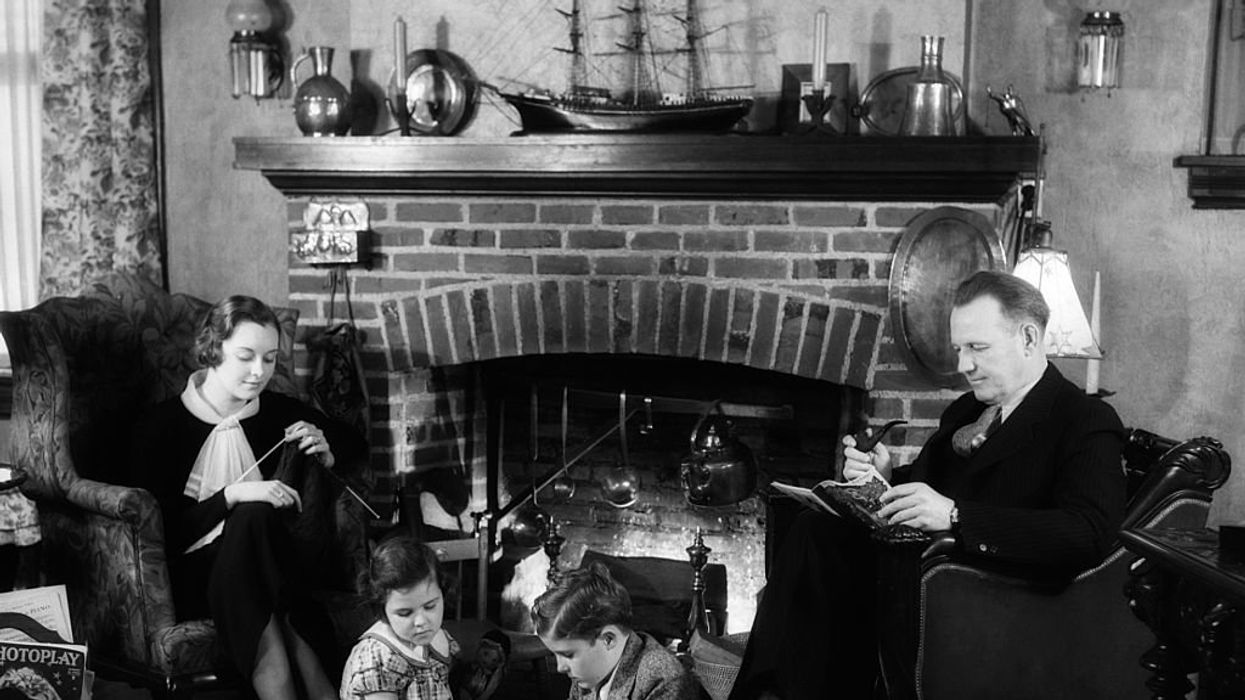
Photo by H. Armstrong Roberts/ClassicStock/Getty Images

It may shock some leftists to discover that a surefire way to bolster the mental health of America's youth is not a numbing diet of pharmaceuticals, surgical procedures, or costly psychiatric interventions but rather conservative parenting.
The Centers for Disease Control and Prevention revealed in a recent report that in 2021, 42% of students indicated they felt persistently sad or hopeless, and 29% signaled that they experienced poor mental health. 22% of students surveyed said they seriously considered suicide, and 10% said they had made an attempt.
Gallup and the Institute for Family Studies launched a study over the summer, looking for the causes of this runaway problem.
Researchers surveyed 6,643 parents and 1,580 adolescents living with a parent through Gallup's nationally representative, probability-based panel and took into account measures of "adolescent mental health, parental demographics, political views, attitudes toward marriage, parenting practices, and parent-child relationships."
A parent's race, ethnicity, household income, and educational level appear to bear little relation to their child's mental well-being. Rather, their parental practices, worldview, relationship with their child, and relationship with their spouse appear to be the greatest predictors of the next generation's cognitive health.
Jonathan Rothwell, principal economist at Gallup and the lead author of the study, underscored in an IFS blog post that the "best results com[e] from warm, responsive and rule-bound, disciplined parenting."
The most impactful parenting practices identified in the study pertain to regulation and enforcement, including setting well-established rules; demonstrating affection daily; setting a regular routine; and authoritatively regulating behavior.
Respondents who indicated it was difficult to discipline their child scored eight points lower on an index that combines youth-reported measures of well-being and mental health with parent reports. Adolescents belonging to parents who agreed that their child "must complete the priorities I set for them before they are allowed to play or relax" alternatively saw a 7.3% increase in likelihood of having good mental health.
Political ideology was found to be a strong predictor of parenting style. According to the study, adolescents with "very conservative parents are 16 to 17 percentage points more likely to be in good or excellent mental health compared to their peers with very liberal parents."
Liberal parents, conversely, had the lowest scores. Only 40% of liberal parents scored above average on the index. By way of comparison, 71% of very conservative parents and 56% of conservative parents scored above average.
According to the data, the biggest political divide in responses manifested in response to the statement, "my child often gets their way when we have a conflict." 80% of very conservative parents disagreed compared to 66% of conservative parents, 64% of moderate parents, 53% of liberal parents, and 55% of very liberal parents.
Rothwell noted, "Conservative parents enjoy higher quality relationships with their children, characterized by fewer arguments, more warmth, and a stronger bond, according to both parent and child reporting."
Beside ideology, parents who disagree with the notion marriage is an outdated institution, agree that marriage improves the quality of relationships by strengthening commitment, and wish for their own children to get married some day appear to have the best outcomes.
When it comes to couples, parents in high-quality relationships with their spouse were found to be roughly 14% more likely to adopt the practices that most benefit adolescents than those who give a middling or poor review of their spousal relationship. The partner-partner relationship also happens to be the strongest predictor of child-parent relationship quality.
Rothwell referenced the work of the late Stanford University psychologist Eleanor Maccoby, intimating she had been on the money in suggesting that children raised in authoritative homes — contra authoritarian or laissez-faire homes — were more likely to exhibit "self-control, social competence, success in school, compliance with rules and reasonable norms, and even exhibit more confidence and creativity."
The Gallup economist further suggested that contrary to the prevailing wisdom presuming medical experts to be the "only people who can prevent illness or help if it arises — often with prescription drugs," parents' actions, judgments, and relationships remain, as always, the key to their teen's mental health.
Like Blaze News? Bypass the censors, sign up for our newsletters, and get stories like this direct to your inbox. Sign up here!